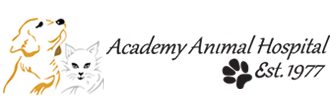Grain-Free Dog Food & Heart Disease

The US Food and Drug Administration has been investigating the potential connection between certain canine diets and the development of heart disease since July of 2018. This investigation is ongoing, and they’re specifically looking into the development of canine dilated cardiomyopathy (DCM) in dogs that have been fed certain pet foods that contain legumes, peas, lentils, or potatoes as a main ingredient, rather than wheat flour, corn, rice, or soybean meal.
Since beginning the investigation, the FDA has analyzed data from reports they received from January 2014 through November 2018. They have actively collaborated with several other animal health groups and developed a reporting portal for those with animals affected with DCM with a possible connection to the animals diet.
Here are more details on their investigation, current findings, and what to do if your dog has suspected DCM and has been eating a grain-free pet food.
What is Canine DCM?
Canine dilated cardiomyopathy is a disease of the heart muscle in dogs that results in an enlarged heart. As the heart chambers become dilated, it becomes more difficult for the heart to pump, causing heart valves to leak.
Ultimately, DCM leads to a buildup of fluid in the chest and abdomen, often resulting in congestive heart failure. Non-genetic cases of DCM that are caught early can be improved under veterinary treatment.
What Causes DCM?
The main underlying cause of DCM has yet to be identified, but research thus far shows there may be a genetic component. Typically, DCM affects large and giant breed dogs, like Newfoundlands, Saint Bernards, Great Danes, and Dobermans.
This disease is less commonly found in medium sized and smaller breeds. However, there have been reports to the FDA of cases of DCM in Labrador Retrievers, Whippets, a Shih Tzu, Bulldog, and Miniature Schnauzers.
What is the Suspected Link in DCM and Grain-Free Food?
When cases of DCM have been reported to the FDA, a high number of these reports have included reports of the animal primarily eating a grain-free pet food as their diet for anywhere from a few months to several years.
In fact, the current reports show that 90 percent of the dogs reported with DCM were fed a consistent, singular diet of grain free food.
What Steps Have the FDA Taken in Their Investigation So Far?
Over the course of the nearly 5 year long (and counting) investigation, the FDA has analyzed the data they have collected themselves. They have also worked with several animal medicine and nutrition experts and academic teams. To date, the FDA has:
- Worked with the Veterinary Laboratory Investigation and Response Network, a collaboration of government and veterinary diagnostic laboratories, testing tissue, blood, and serum samples from affected dogs.
- Consulted with board-certified veterinary nutritionists to identify potential contributing factors to the development of DCM heart disease, such as digestibility and nutrient bioavailability of legume/potato ingredients found in grain-free dog foods.
- Performed continual examination of pet food formulas, ingredients, and processing methods.
- Worked with the Chesapeake Veterinary Cardiology Associates, collecting case summaries and blood, serum, and tissue samples to analyze for potential differentiation between potential diet-associated DCM and genetic-associated DCM cases.
- Analyzed cases reported to the FDA for correlations between diet and DCM diagnosis.
How Many Cases of DCM Have Been Reported to the FDA to Date?
During the period of investigation from January 2014 through November 2018, there were 300 reported cases of diagnosed DCM, with some reports involving multiple animals in one household. (Current updates do not include information from December 22, 2018 - January 25, 2019, due to government shutdown minimizing the FDA’s work in the area of animal health.)
Is There A Specific Brand of Pet Food That is At Fault?
No, there is a wide range of pet food brands that have been included in reports, and a variety of types of food as well – kibble, canned soft food, home-cooked, and fresh store bought. The common ingredients among the foods is what seems to be at fault – legumes (beans), pulses (legume seeds), and potatoes (including sweet potatoes) as a main ingredient.
The amount of legumes, pulses, and potatoes in dog foods has increased significantly over the past several years, particularly in foods labeled as “grain free.” Ironically, these foods are usually more expensive and generally touted as a better nutritional choice for your pet.
How Are Legumes, Pulses and Potatoes Connected To Canine DCM?
This is still under investigation. It’s not immediately clear what it is about diets heavy in legumes and/or potatoes that may have a connection to potentially causing DCM.
Details such as the nutritional makeup, how dogs process these ingredients, the bioavailabilty of the nutrients in these foods, and other factors regarding the production of the food itself may be involved as well.
Should I Stop Feeding My Dog a Grain-Free Food?
Not just yet. Right now, the FDA is not making any specific advisories regarding switching away from grain-free foods, since they don’t have enough information on what exactly it is that is potentially linking grain-free foods and DCM.
If you have concerns about your dog’s diet, the FDA recommends speaking with the veterinarian for advice regarding your dog’s specific nutritional needs. Have more questions about DCM or your dog’s nutritional needs? Call us at Academy Animal Hospital for an appointment today.
